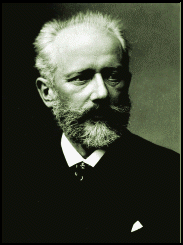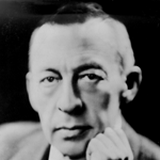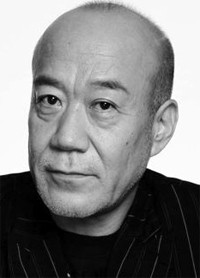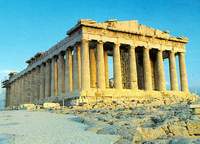 |
Pyotr
Ilyich Tchaikovski (1840-1893) Piano
Concerto No. 1, in B flat Minor (1875)
|
¡@ |
|
Russian
composers rose abruptly after the middle of the 19th century. Pyotr Tchaikovsky was the
very first of this
world-class series. He incorporated the Russian ballads into his works
and presented them in classical forms defined by
the German-Austrian pioneers. The prelude of his Piano
Concerto No. 1 is extremely beautiful and always consoles me in the low
tide. |
 |
Sergei Vasilyevich
Rachmaninov
(1873-1943) Piano
Concerto No. 2, in C Minor (1900) |
|
|
How can you resist the last romance of the 19th century? Sergei
Rachmaninov created the magnificent Piano Concerto No. 2 from the ruin
of his Symphony No. 1. The gloomy strokes of the prelude imply the
stressful dialogue between the devastated mind and the resisting soul.
Within six minutes, the power of hope regains the initiative, symbolized
by splendid notes. For so many classical masterpieces, Sergei's works
touch me in a most understandable manner. |
 |
Joe
Hisaishi (1950-)
Stand Alone (2009) |
|
|
Known for his
great successes in film scores, Joe Hisaishi is one of very few contemporary
composers striking my strings. His compositions for "Laputa: Castle in
the Sky" (1986), "Porco Rosso" (1992), "Departures" (2008) are all
attractive, but it is the soundtrack "Stand Alone" composed for the TV
drama "Clouds over the Hill" (2009-2011) greatly empowering
desperate people. I personally visited the Matsuyama Castle in respect
of the figures profiled by the TV drama. |
.jpg) |
Notre
Dame, Paris (constructed during 1163-1250) |
|
|
The prototype of early Gothic architectures. Large area of windows (in place of
solid walls) along with the time-consuming constructions proved that the secular life
was more reliable and worth glorifying. Notre Dame is not only a religious building
but a historical and cultural stage. For example, the coronation of Napoleon I (1804), and
Victor Hugo's "The Hunchback of Notre-Dame (1831)" were staged
here. |
.jpg) |
Hans
Holbein
(1497~1543) Portrait
of Erasmus
(1523)
|
.jpg)
Holbein's
biography
|
|
Desiderius Erasmus
(1466-1536) was a renowned humanist
during the Renaissance. The
atmosphere of this portrait implies the gentle, however, inalienable determination to
pursue the truth of universe. That happens to be the core value of the Renaissance. |
.jpg) |
Jean Francois
Millet
(1814~1875) Les
Glaneuses (The Gleaners, 1857) |
.jpg)
|
|
Naturalism,
prevailing in the middle of the 19th century, concentrated on the lives of civilians;
rather than those of saints, nobles, or legends. Millet excelled in presenting the
lives
of farmers and shepherds in a majestic manner, reminding us the dignity of
common labors. The subsequent Impressionism extended the realistic spirit
from painting themes to techniques, which are based on strictly scientific
observations. |
 |
Traveling |
Locations
I've visited...
.jpg)
.jpg)
|
|
Visiting different corners of this globe has long been my dream. I
learned the diverse features of this
world from the Geography textbooks. Nevertheless, taking a close-up is
indispensable to have a deep insight. So far, I've called on several
countries: Austria, Switzerland, France, Belgium, Netherlands, Greece, USA,
Canada, China, Russia, Spain, Turkey, Japan, Sweden, Korea, Germany, Czech,
and Denmark. These experiences
awaked me of the importance of preserving cultural heritages, which will
guide us in face of contemporary challenges. |
 |
History |
|
|
Why do I love to read something that has passed away? First, to
reconstruct the linkage with the ancients; second, to know the deep
reasons of many contemporary events. A history-lover is more likely to
transcend the political slogans or preconceived prejudices to maintain
an objective position. |
 |
WarCraft
II |
|
|
You
might wonder why I list this item here. Isn't it just a PC game? Far beyond
that! A classmate introduced it to me in 1995, while I had never
played a PC game before. After that, groups of my classmates kicked off
the virtual campaigns in the PC classroom frequently. Winning or losing the
battles only played a nominal role, while the process clearly reveals human nature. During the nervous campaign, one can hardly conceal
his idiosyncrasies: aggressive or conservative, selfish or altruistic. I
came to realize myself more clearly, and made good friends with some of
my "brothers in arms". |